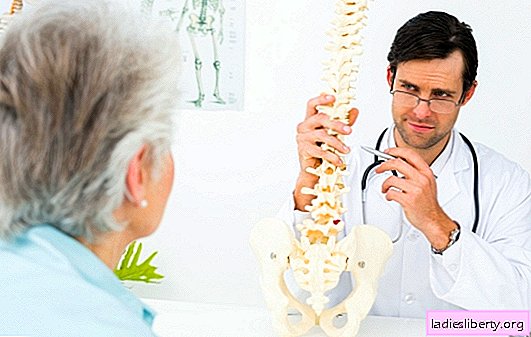
Vitamin D does not prevent fractures, nor does it improve bone mineral density in adults or the elderly. This is reported by scientists from the University of Auckland, New Zealand. The findings of the experts are based on 82 high quality studies.
Why is vitamin D useless?
Vitamin D supplements have long been recommended for the treatment or prevention of osteoporosis. Until 2014, work was carried out that partially confirmed the beneficial effect. However, since 2014, more than 30 studies on vitamin D and bone health have been published.
New scientific work shows that vitamin D does not prevent fractures or falls, in both high and low doses.
Scientists conclude that there are several reasons not to use vitamin D supplements to maintain or improve the health of the musculoskeletal system.
An exception is the prevention of rare diseases - rickets and osteomalacia.
The authors note that the data on the falls were collected differently in different studies, which may affect the results of scientific work. Experts note that in shorter studies with shorter durations, vitamin D is effective. Larger studies with longer durations show the opposite result.
When analyzing bone density, there were slight differences in the lumbar spine, femur, and the whole body. According to the authors, none of the differences had clinical significance. In addition, the authors conducted more than 60 analyzes in subgroups to analyze their findings.
Vitamin D is not a panacea
Many patients (and doctors) in various studies and social networks have argued that vitamin D is a panacea. This thinking is reminiscent of zeal, which many years ago supported the widespread use of vitamin A, C and E.
Although there are still open questions, there are already voices about the benefits of vitamin D in the extracellular environment. About 100,000 people are currently taking part in vitamin D supplementation studies.
Professionals from around the world are looking forward to research results that will put an end to the benefits of vitamin D.
Calcium doesn't help either?
To prevent osteoporosis, even calcium and vitamin D supplements do not help. About 40% of women suffer from osteoporosis in old age. Men also often suffer from bone fractures, but at an older age. Osteoporosis is associated with increased morbidity and often leads to death.
Chinese scientists summarize data from 33 clinical trials involving more than 50,000 participants. These included adults over 50 who did not live in nursing homes or other facilities. Studies have compared calcium and vitamin D intake with placebo or other dummies.
Result: consuming calcium or vitamin D did not help reduce the risk of bone fractures.
With respect to hip fractures, doctors even found that the relative risk increased by 53%, but was not significant. Vitamin D intake has also led to an increase in the frequency of hip fractures.
Specialists also did not find any evidence for a group of invertebrate, vertebral fractures or the overall frequency of fractures. No useful doses were found in subgroup analyzes.
The intake of calcium and 25-hydroxyvitamin D with food also did not affect the study results. Current scientists see no reason to suggest that older people take calcium or vitamin D supplements.
Doctors recommend to refrain from the use of vitamin supplements, calcium or other unverified biologically active substances. Since the potential health benefits have not been proven in any study, patients incur financial losses.
The average market value of combination vitamin D is 250 Russian rubles.
Often, geriatricians prescribe very high doses, which requires constant financial investment.
If the doctor insists on the use of food additives, it is recommended to change the specialist. You may need to consult another doctor if the symptoms of the disease do not improve.











